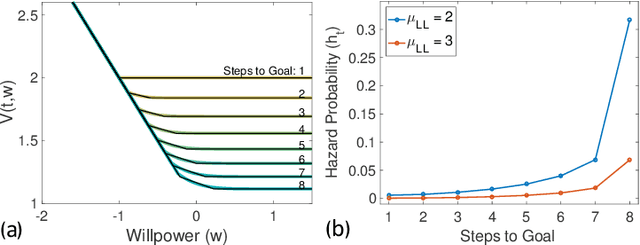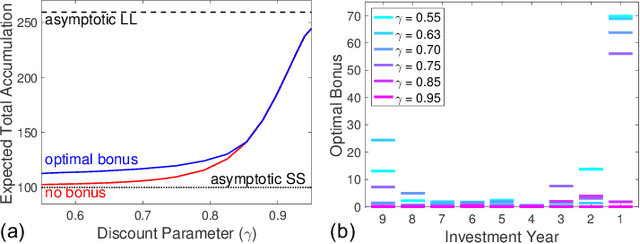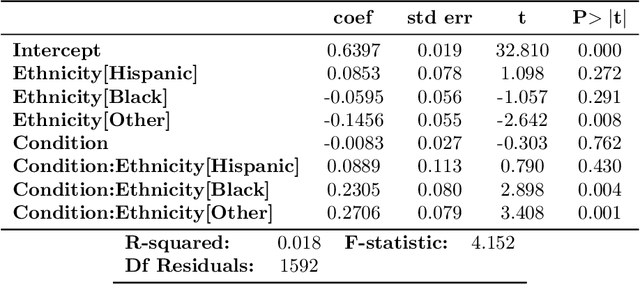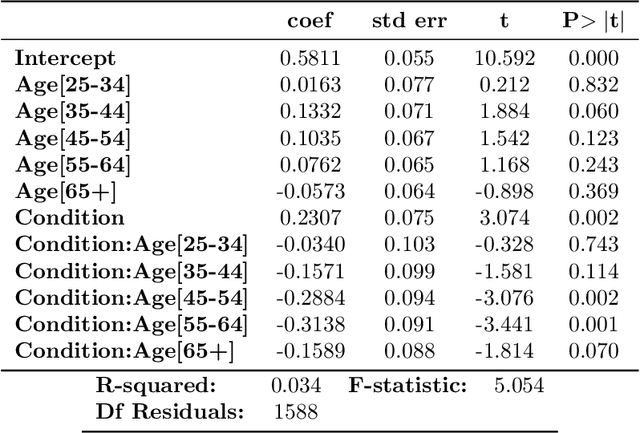Shabnam Hakimi
Learning to Represent Individual Differences for Choice Decision Making
Mar 27, 2025Abstract:Human decision making can be challenging to predict because decisions are affected by a number of complex factors. Adding to this complexity, decision-making processes can differ considerably between individuals, and methods aimed at predicting human decisions need to take individual differences into account. Behavioral science offers methods by which to measure individual differences (e.g., questionnaires, behavioral models), but these are often narrowed down to low dimensions and not tailored to specific prediction tasks. This paper investigates the use of representation learning to measure individual differences from behavioral experiment data. Representation learning offers a flexible approach to create individual embeddings from data that are both structured (e.g., demographic information) and unstructured (e.g., free text), where the flexibility provides more options for individual difference measures for personalization, e.g., free text responses may allow for open-ended questions that are less privacy-sensitive. In the current paper we use representation learning to characterize individual differences in human performance on an economic decision-making task. We demonstrate that models using representation learning to capture individual differences consistently improve decision predictions over models without representation learning, and even outperform well-known theory-based behavioral models used in these environments. Our results propose that representation learning offers a useful and flexible tool to capture individual differences.
Understanding the Cognitive Complexity in Language Elicited by Product Images
Sep 25, 2024Abstract:Product images (e.g., a phone) can be used to elicit a diverse set of consumer-reported features expressed through language, including surface-level perceptual attributes (e.g., "white") and more complex ones, like perceived utility (e.g., "battery"). The cognitive complexity of elicited language reveals the nature of cognitive processes and the context required to understand them; cognitive complexity also predicts consumers' subsequent choices. This work offers an approach for measuring and validating the cognitive complexity of human language elicited by product images, providing a tool for understanding the cognitive processes of human as well as virtual respondents simulated by Large Language Models (LLMs). We also introduce a large dataset that includes diverse descriptive labels for product images, including human-rated complexity. We demonstrate that human-rated cognitive complexity can be approximated using a set of natural language models that, combined, roughly capture the complexity construct. Moreover, this approach is minimally supervised and scalable, even in use cases with limited human assessment of complexity.
Overcoming Temptation: Incentive Design For Intertemporal Choice
Mar 14, 2022



Abstract:Individuals are often faced with temptations that can lead them astray from long-term goals. We're interested in developing interventions that steer individuals toward making good initial decisions and then maintaining those decisions over time. In the realm of financial decision making, a particularly successful approach is the prize-linked savings account: individuals are incentivized to make deposits by tying deposits to a periodic lottery that awards bonuses to the savers. Although these lotteries have been very effective in motivating savers across the globe, they are a one-size-fits-all solution. We investigate whether customized bonuses can be more effective. We formalize a delayed-gratification task as a Markov decision problem and characterize individuals as rational agents subject to temporal discounting, a cost associated with effort, and fluctuations in willpower. Our theory is able to explain key behavioral findings in intertemporal choice. We created an online delayed-gratification game in which the player scores points by selecting a queue to wait in and then performing a series of actions to advance to the front. Data collected from the game is fit to the model, and the instantiated model is then used to optimize predicted player performance over a space of incentives. We demonstrate that customized incentive structures can improve an individual's goal-directed decision making.
Machine learning reveals how personalized climate communication can both succeed and backfire
Sep 10, 2021



Abstract:Different advertising messages work for different people. Machine learning can be an effective way to personalise climate communications. In this paper we use machine learning to reanalyse findings from a recent study, showing that online advertisements increased some people's belief in climate change while resulting in decreased belief in others. In particular, we show that the effect of the advertisements could change depending on people's age and ethnicity.
 Add to Chrome
Add to Chrome Add to Firefox
Add to Firefox Add to Edge
Add to Edge